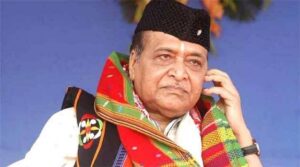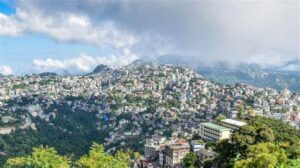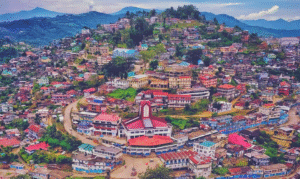Robin S. Ngangom stands as a significant figure in Indian literature, particularly from the Northeast. Born in 1959 in Imphal, Manipur, he is a bilingual poet and translator who writes in both English and Meiteilon (Manipuri). His work delves deep into the personal and political landscapes of the region, offering readers a poignant exploration of identity, memory, and resistance.(Poemine, Wikipedia)
Early Life and Academic Pursuits
Ngangom pursued his studies in literature at St. Edmund’s College and the North Eastern Hill University (NEHU) in Shillong, where he currently serves as an Associate Professor in the Department of English. His academic background has significantly influenced his literary endeavors, allowing him to bridge the gap between traditional Manipuri narratives and contemporary literary forms.(TwoCircles.net)
Literary Contributions
Ngangom’s poetry is characterized by its lyrical quality and deep introspection. He has published several poetry collections, including:
- Words and the Silence (1988)
- Time’s Crossroads (1994)
- The Desire of Roots (2006)
- My Invented Land: New and Selected Poems (2023)(Wikipedia, TwoCircles.net, Borderless)
His work often reflects the complexities of life in Northeast India, addressing themes such as political unrest, cultural identity, and personal loss. In his poetry, Ngangom seamlessly weaves together the personal and the political, offering readers a nuanced perspective on the region’s challenges and beauty.
Themes and Style
Ngangom’s poetry is deeply rooted in the landscapes and cultures of Northeast India. He often draws upon local folklore, traditions, and the natural environment to inform his work. His poems are known for their emotional depth and vivid imagery, capturing the essence of the region’s struggles and resilience. In a review of The Desire of Roots, it was noted that Ngangom projects the “carnal life” as the essence of his poetry, revolving around political situations of the Northeast, societal discrimination, isolation, and the mundaneness of modernization. (The Antonym)
Translation and Advocacy
Beyond his original works, Ngangom has made significant contributions as a translator, bringing Manipuri poetry to a broader audience. His efforts have been recognized with awards such as the Katha Award for Translation in 1999 and the Sarda Translation Award in 2013. Through his translations, he has played a crucial role in preserving and promoting the rich literary heritage of Manipur.(TwoCircles.net)
Recognition and Influence
Ngangom’s work has garnered national and international attention. He was invited to the UK Year of Literature and Writing in 1995 and has participated in various literary festivals and readings. His poems have been included in academic curricula, such as Delhi University’s undergraduate program, highlighting their significance in contemporary Indian literature. (Borderless, TwoCircles.net)
Conclusion
Robin S. Ngangom’s contributions to literature and translation have been instrumental in bringing the voices and experiences of Northeast India to the forefront. Through his evocative poetry and dedicated translation work, he offers readers a profound understanding of the region’s complexities, challenges, and enduring spirit. His work stands as a testament to the power of literature to bridge cultural divides and foster empathy and awareness.(Poetry Without Fear)






